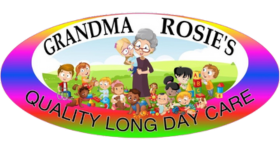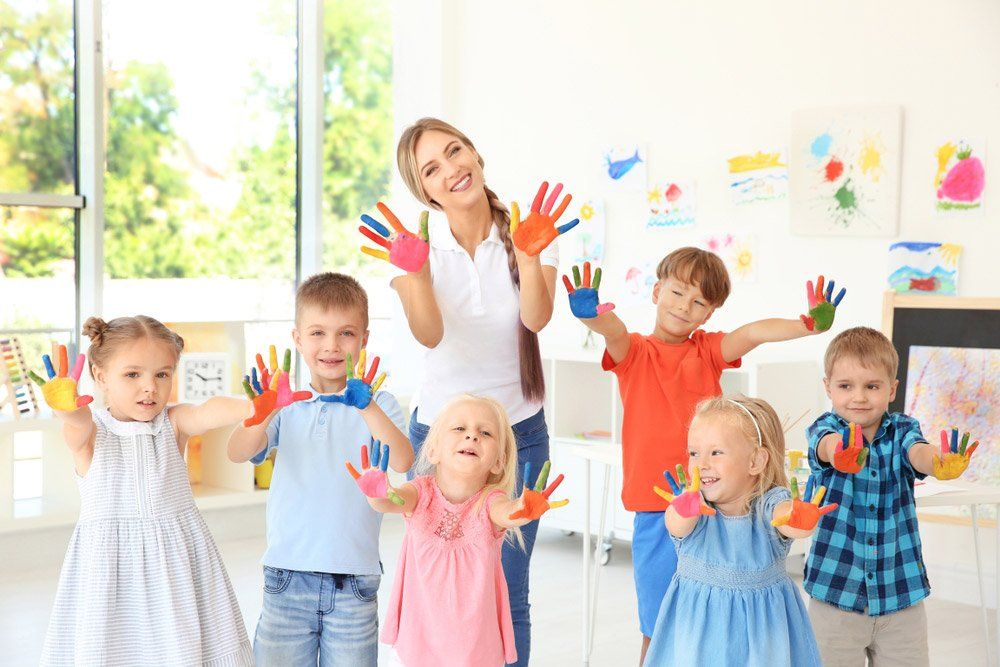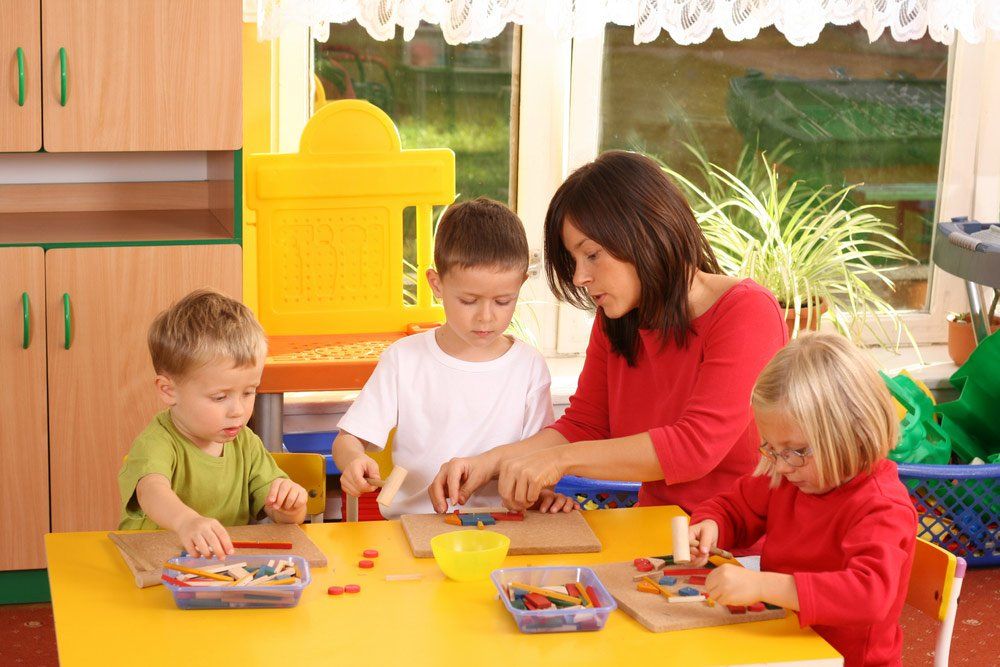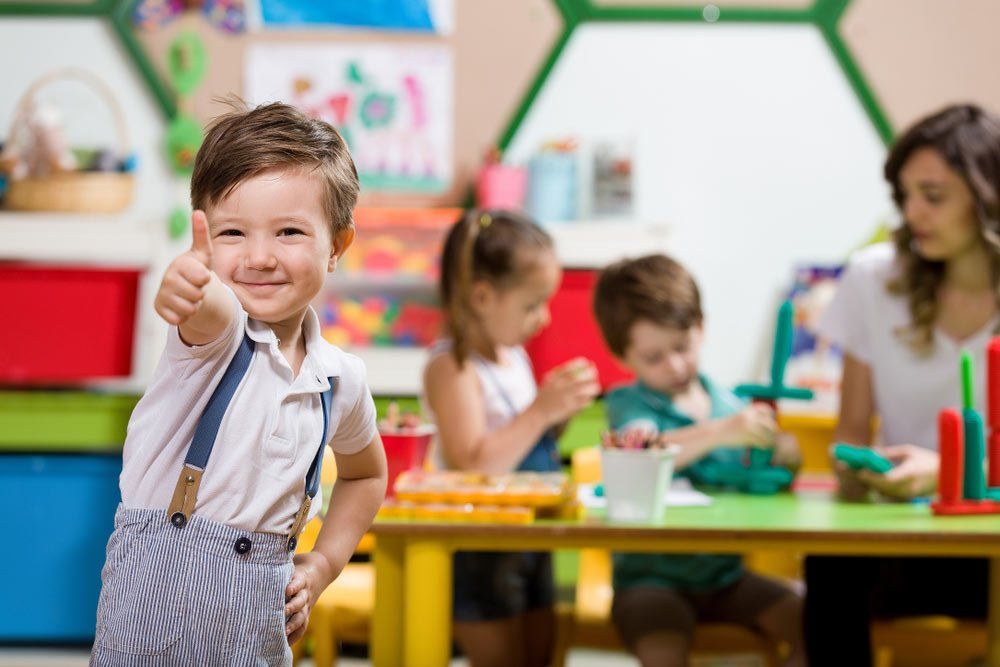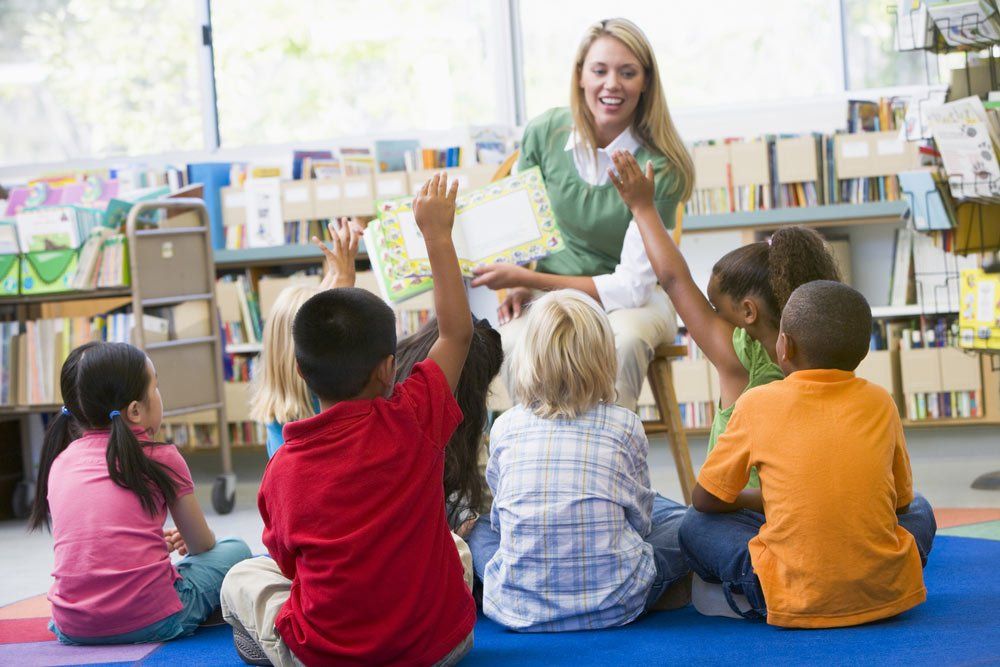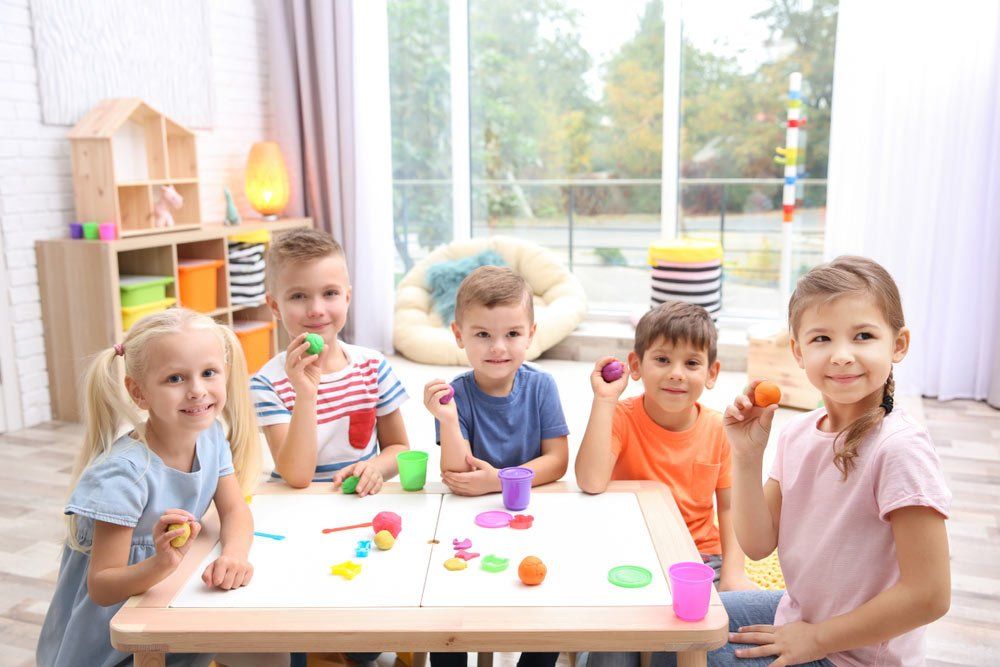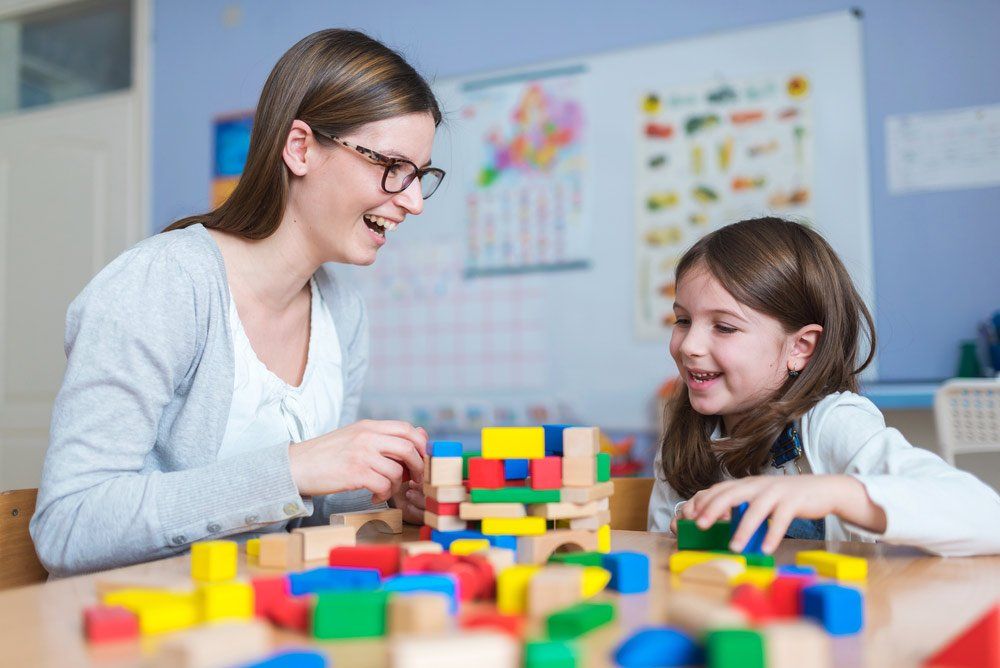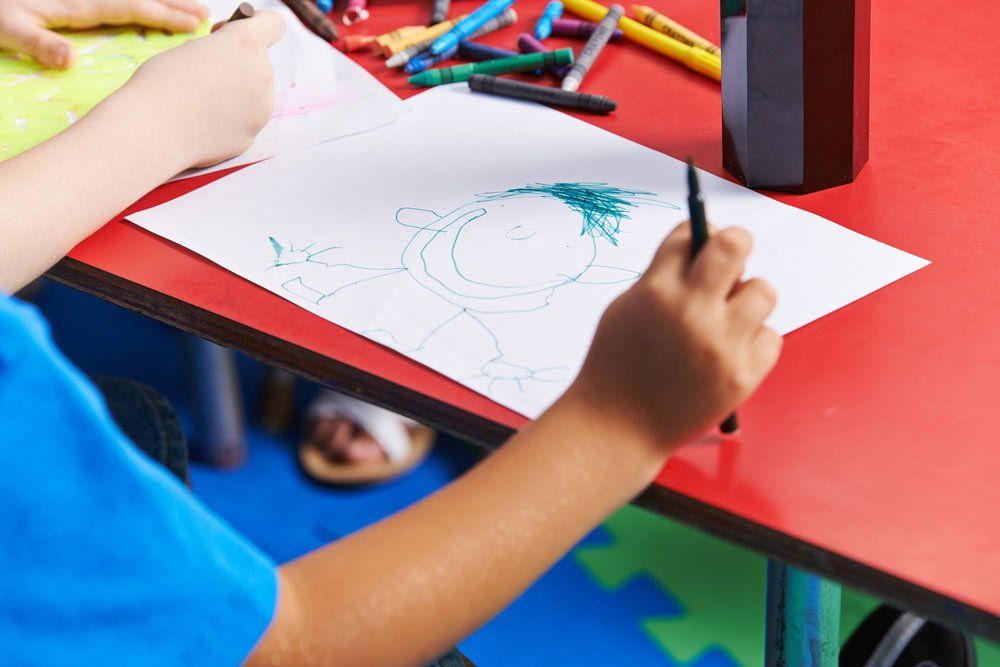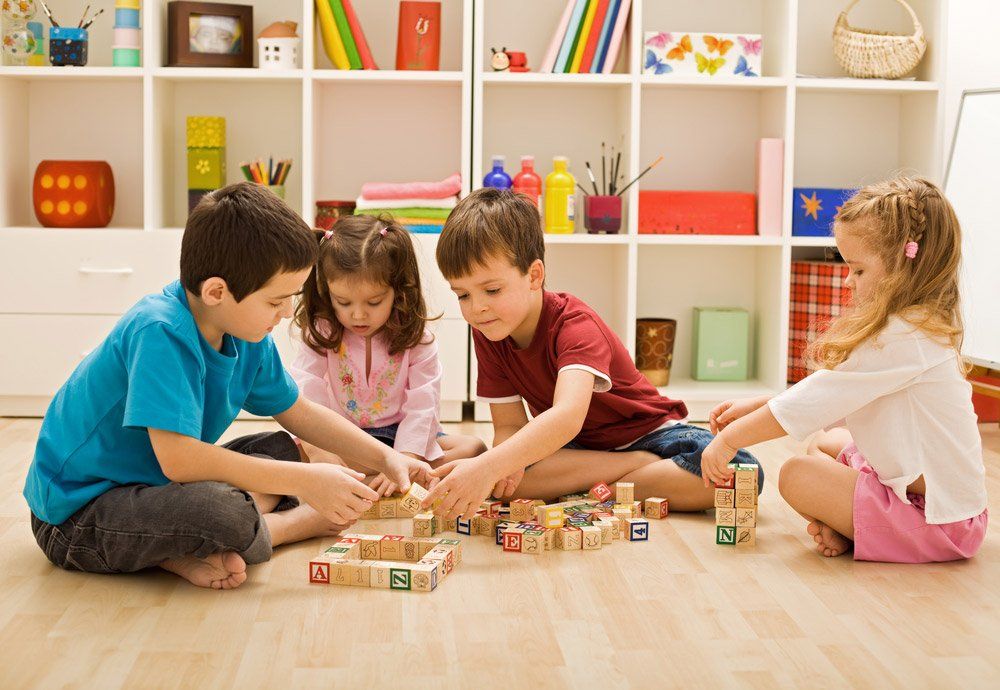
Early Learning Programs & Preschool in Wollongong
EYLF Preschool Program
Our program is based on the Early Years Learning Framework (EYLF) which helps educators map the journey of preschool children—both where they have been and where they are going. It guides the educators, children and families and helps identify goals and opportunities.
At Grandma Rosie’s Quality Long Day Care, our preschool room offers a variety of experiences which promote and further develops the children’s skills and knowledge to assist them in a smooth transition to school. These experiences are incorporated into the daily routine and play-based learning curriculum.
As in our philosophy, we believe children learn best in play-based situations, where learning is contextualised and personalised to each individual child. We believe that children learn best in social settings, where they are given the opportunity to investigate their surroundings in a hands-on learning environment.
All children are invited to participate in this program
Whilst all children are invited to participate in this program, educators encourage children who will go to primary school to immerse themselves in this environment. Interactions are warm and positive and hopefully encourage children to enjoy learning and spontaneously select experiences to enhance overall development. Educators use a variety of strategies to enhance learning and knowledge building in play-based sessions. These include intentional teaching, modelling, opening questioning, explaining, exploring and expanding children’s interests, as well as planning and assessing experiences based on individual interests.
In the preschool room, children are encouraged to take care of their own belongings and further develop their independence. Educators work alongside children by asking questions and offering different strategies for children to help solve problems for themselves throughout the day. Examples of these may include using the self-help table, water stations, placing jumpers and hats in their lockers and conflict resolution.
For more information or to enquire about enrolments, contact us on (02) 4226 6589. We offer preschool programs at our childcare centres in central Woolongong, Primbee, Haywards Bay and both of our locations in Dapto.
Social & Emotional Development
We promote children’s emotional and social development by allowing children to share their thoughts, ideas and opinions within the room as well as participate in a range of different group sizes where we can interact, share ideas and learn from each other.
Play is an important part of our school readiness program and supports children’s social and emotional development. Children are given the opportunity to participate in groups games and dramatic and imaginative play, which includes dressing up and role play, aiding their development of positive social and emotional skills and values.
This provides opportunities for children to:
- Practise how to work with other children, negotiate ideas and make choices and decisions.
- Develop self-confidence by experiencing success and challenges.
- Learn to control their emotions, reduce impulsive behaviour, or reduce stress as they act out feelings and events that might be worrying them.
- Develop empathy and fairness as they learn to play alongside and with other children.
- Promote the child’s self-identity skills—developing autonomy, independence and a sense of security.
- Practice different ways in which you can approach others and initiate play.
- Build resilience—to develop lifelong skills to work through challenges and any conflict which may arise.
Early Literacy Skills
In our preschool room, early literacy skills are promoted throughout the day by immersing the children in a print rich environment, as well as group times. Children engage in a minimum of one group time experience where a story will be read and questions asked to promote the children’s knowledge and understanding that print carries a message and to discuss the topic/meaning behind the story.
By incorporating literature into the program, we are helping to create a love for reading and pre-reading skills. For example: turning the page from left to right, using pictures to help tell a story and that print carries meaning/messages. Literacy is also promoted through the use of a variety of books (fiction and non-fiction), small world play, bringing books to life, felt board stories, puppets and information technology.
We encourage the exploration of memory recall skills through discussions based around retelling what occurred within the story (beginning, middle and end), and predicting/imagining what could happen next or at the end of the story. This further promotes imagination, creativity and pre-reading.
Early Literacy Activities
Children will have the opportunity to participate in the following experiences to further and develop early literacy:
- Immersing children in different forms of literacy by having story books and factual books readily available in book corner.
- Bringing books to life through small world play.
- Signing in during their morning drop off routine.
- Recognising their names on their property and around the environment.
- Group times involving stories (fiction, non-fiction), puppets, felt boards and allowing the children to construct their own stories.
- Developing pre-reading skills such as turning the pages of the book; understanding illustrations help us to depict the storyline; letters, symbol and word recognition; recall, memory and comprehension skills and many more.
Develop Early Literacy
- Engaging in rich conversations, promoting expressive and receptive language. To promote listening to and engaging in multi-step experiences/instructions.
- Developing their prewriting skills by allowing them to spontaneously engage and explore their own writing capabilities. Children are encouraged to write symbols, letter and pictures to enhance their imagination, creativity, fine motor skills, pencil grip and control.
- Setting up experiences that promote letter writing to each other, members of the community and about any special events throughout the year.
- Participating in projects that have multiple steps.
- Immersing children in a rich print environment by having number and letter charts on display, signs to stipulate what is in the home corner (hair salon, café), menus, magazines, construction and road signs, multicultural prints and images in the writing area.
- Designing, developing and introducing “Let’s Read” bags through a home library system.
Wellness Awareness & Skills
Because young children are forming attitudes and behaviours that will influence them throughout their lives, it is important to expose them to experiences that foster their ability to make good health decisions, develop a positive self-image, make healthy nutrition choices and show respect for their bodies.
Our preschool teachers provide children with varied opportunities and materials geared towards developing healthy lifelong habits, such as:
- Identifying nutritious foods and how they help their bodies to grow.
- Taking responsibility for his/her own basic hygiene such as proper hand washing and covering his/her coughs. Encourage the ‘dab’ technique where you cough into the elbow rather than the hand.
- Engage in sun safety activities and apply own sunscreen daily, as well as locating their hats for outdoor play.
- Engaging in physical activities—hopping, climbing, yoga, soccer, etc.
- Engaging in relaxation, guided meditation, breathing and mindfulness activities to minimise stress, increase energy and improve focus and concentration.
- Following procedures for emergency evacuations.
- Learning about dental hygiene, water safety and road safety.
- Encouraging/monitoring water/hydration levels throughout the day.
- Encouraging emotional language—promotes awareness of feelings, thoughts and actions within themselves and others.
Mathematics & Science
Throughout the day, children are exposed to many different learning experiences which promote a sense of curiosity and wonder. Children are encouraged to problem solve, hypothesise, explore properties, make important discoveries, experiment, research and investigate to further extend their knowledge, skills and interests.
Through the form of play, children are exposed to and further develop skills in number recognition, counting, one to one correspondence, sorting and categorising, shape and colour recognition and construction.
Our preschool teachers create learning experiences that build math skills and reasoning so children can engage their critical thinking skills to solve problems and use mathematics in real and meaningful ways.
Children will have the opportunity to participate in the following experiences to further and develop science and mathematics skills:
- Numeral Recognition—counting forwards and backwards through games, songs, puppets and rhymes; one to one correspondence; number recognition and representation.
- Subitising—dot and number recognition on cards, rocks, dice, etc.
- Sorting items by size, colour or shape during clean-up.
- Stringing beads in a pattern and/or sequence.
- Counting out small groups of items and matching to numeral cards.
Problem Solving Skills
- Playing estimation games such as "Which Jar Has More Pebbles?"
- Engaging in board games such as “Snakes and Ladders.”
- Experimenting with measuring cups in the sand or water table.
- Money and currency—incorporating money into the home corner by setting up a cafe.
- Measurement and weight through the use of scales, cooking experiences and measuring themselves/objects within the environment.
- Discussing past, present and future events.
- Problem solving skills (cause and effect, trial and error), investigating techniques, hypothesising and explore their curiosity and interests through experiments.
- Shape and colour recognition through creative arts; science experiments.
- Time—concepts of time are reinforced throughout the day and incorporated into the daily routine; timers, clocks and many more.
- Investigating objects on a light box or light table.
- Predicting daily weather.
- Exploring maps, magazines, globes, atlases and other resources.
- Promoting the use of mathematical language. For example: full, half, empty, heavy, light, etc.
- Designing, developing and introducing “Let’s Count” and home learning bags through a home library system.
Diversity, Sustainability & Community
Pre-schoolers are actively developing their sense of self and who they are in the world. Our preschool teachers create respectful and diverse learning environments, helping children understand the world they live in. Teachers also present unique experiences for children, enhancing a pre-schooler’s sense of responsibility and compassion for people, such as:
- Sharing cultural and family traditions with the room.
- Working with peers on community service projects—e.g., Red Nose Day.
- Excursions and events (local libraries, local shopping centres, local schools, inviting the community into the service)
- Developing and maintaining gardens.
- Encouraging children to take on roles and responsibilities in relations to promote sustainable practices—e.g., watering plants, maintaining gardens and turning lights/taps off when not in use.
- Using and exploring recycling materials.
- Caring for the worm farm.
- Contributing to composting—exploring natural ways to recycle and care for our environment.
- Exploring photos of children and adults who are similar or different from them.
- Playing collaboratively with peers.
- Caring for classroom plants and growing gardens in our outdoor environments.
- Caring for classroom pets.
Learning Creative Arts
Artistic exploration encourages important skills such as creative thinking, adaptation, problem-solving, innovation and follow-through. Art opportunities provide children with the opportunity to express their feelings and emotions in a safe way. Artistic exploration also provides children with the opportunity to experience success and build self-confidence in innovative ways because art leaves the end open to the creator.
Our preschool teachers nurture children’s artistic abilities and help them appreciate art in the broader world by engaging in diverse creative experiences, such as:
- Working on long-term art projects, such as papier mâché sculptures and collaborative art works.
- Dictating stories to accompany drawings.
- Singing songs and reading books from around the world.
- Making instruments.
- Painting to the beat of music or classical music.
- Creating dramatic play areas such as beaches, cafes, grocery stores and offices.
- Engaging in natural and recycled land art—e.g., using leaves, sticks, bottle lids, keys and seeds.
- Sensory art exploration through mixing colours, oils and water, sand trays, etc.
- Immersing children in a rich print environment, promoting a range of artists and techniques.
- Exploring music, movement, drama and dance.
- Engaging in a wide variety of loose parts play which provides endless possibilities and invites creativity and imagination.
Incorporating Information Technology
Children in our preschool room use digital technologies to explore a diverse range of concepts and to learn about their immediate and wider community environments. Having iPads, Google Home and Google Hub in the centre helps to extend children’s learning on current interest topics, room projects and promotes investigating ideas to represent their thinking.
We engage with a programming app called Kinderloop as a communication tool with parents to share learning assessments and information about future programming. Parents are welcome to share photos with us via this app using blue posts. Children then can share out of school experiences with their friends and educators.
At our centre, we are committed to helping each child make a smooth transition to kindergarten. We communicate with schools using Transition to School Statements and provide information to families about information nights and networking sessions at local schools.
We arrange meetings with local schools and engage in professional discussions with teachers and school counsellors in order to help provide a smooth transition from the early years into primary school.
We also work collaboratively with other professionals when necessary to ensure a smooth, successful transition.
